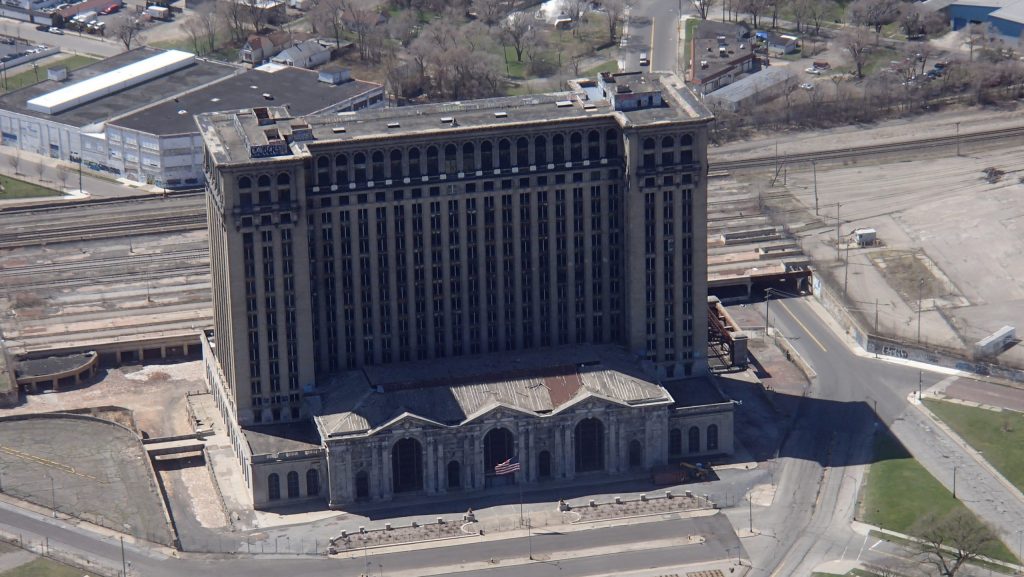What Does Train Station Transformation Say About Detroit’s Resurgence?
Stephen Henderson looks at what the train station project could mean for Detroit and whether it could benefit low-income workers.

An aerial view of Michigan Central Station.

The big exciting announcement in Detroit this week was Ford’s unveiling of its plans for the towering Michigan Central station in the Corktown neighborhood. Ford announced a plan that promises to include a thousand new jobs with Ford and would presumably boost economic activity in that section of the city.
So what would that kind of economic boon look like for Detroit, and for Detroiters?
Detroit Today host Stephen Henderson speaks with Detroit Free Press columnist John Gallagher about the news. Gallagher says there’s still a lot of work to be done and many questions to be answered, but “it does raise…the economic profile of both Corktown and the city.”
“That brings new investment and pumps up the tax base,” he adds.
Ford’s purchase of the train station is the latest in a series of exciting development happening in downtown Detroit over the past decade with companies like Quicken Loans and Blue Cross Blue shield of Michigan and General Motors all expanding their footprints, bringing workers and activity to a space that for so long was just dead.
But we also talk a lot about who really benefits from all that activity.
The Service Employees International Union (SEIU) says its workers in downtown Detroit — janitors who clean the buildings where nicely paid young professionals are now working — are being left out. They earn between $9 and $12 an hour. That’s less than enough to provide shelter, food and other basics for a family of four.

Would that be a just way to spread the economic growth of downtown to other people, and other parts of the city?
Or is there a good reason that janitors and other laborers make less?
Henderson speaks with Pamela Owens Moore, a janitor in downtown Detroit, as well as Stephanie Arellano, Justice for Janitors campaign manager with SEIU Local 1.
“We work and we do what we’re supposed to do, and at the end of the day, we want our fair share,” says Owens Moore.
“When janitors like Pamela make more money, they can participate in what’s happening in our city,” says Arellano.
Click on the audio player above to hear the full conversation.
